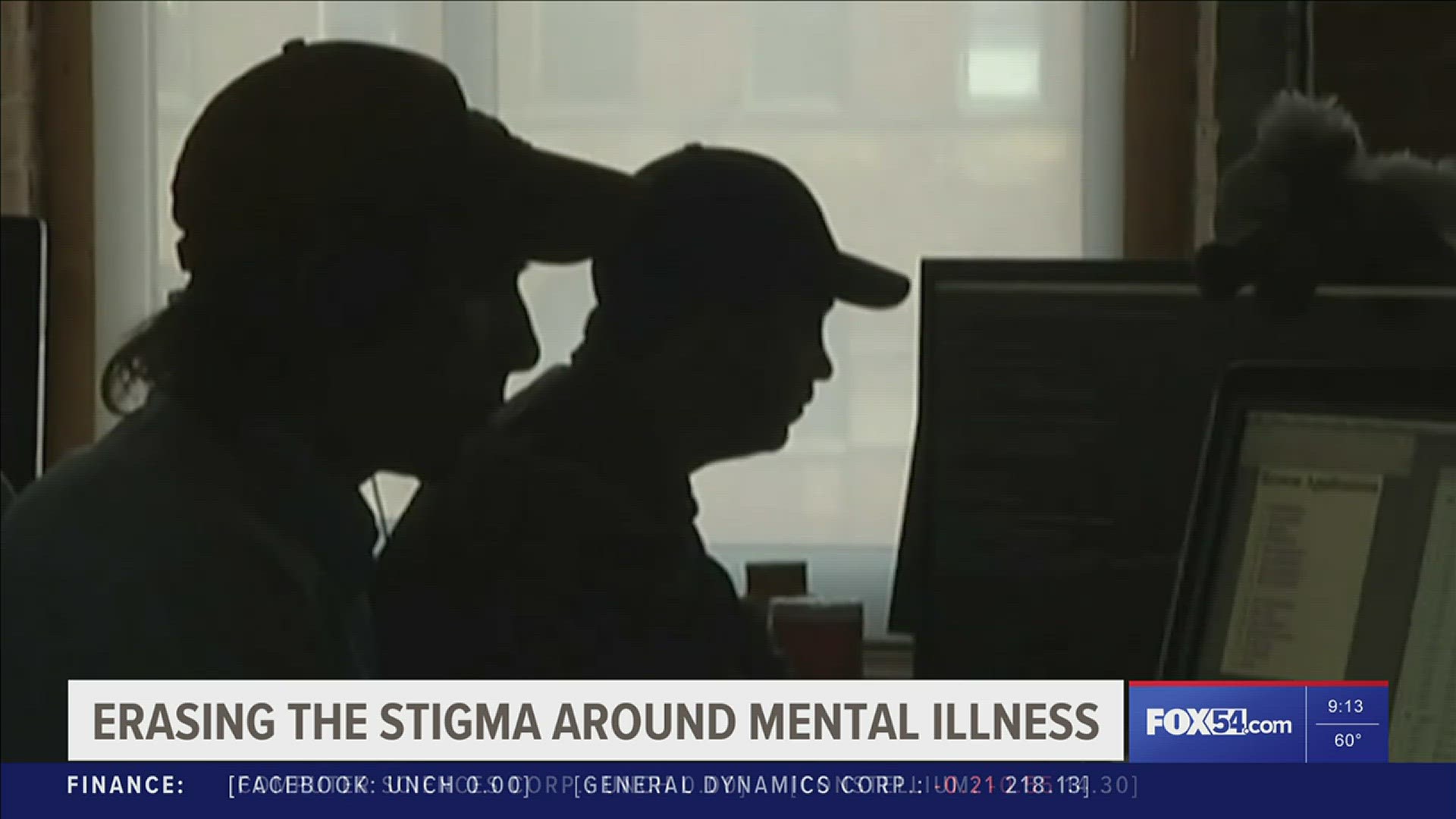HUNTSVILLE, Ala. — At any time, any one can develop a mental illness. That's why it's important to talk about the stigma around mental illness, in an effort to eventally break that stigma. In recent years, talk of mental health and illness is far more common than in the past. But there are still many misconceptions about the topic and still a lot of stigma surrounding it.
Let's start with the basics...
Cheneka Moss, Licensed Professional Counselor with Huntsville Psychotherapy and Counseling Services says there is a big difference between mental health and mental illness. "Mental health is just, you know, your overall health of your mind, your body, all the things that connect so that you can, you know, function properly in your everyday functioning. Mental illness is something that you're actually diagnosed with. that could be schizophrenia, bipolar disorder, anxiety disorder, depressive disorder. and so those things require you to get a little bit more help."
Mental health in general is talked about all the time, from people posting real-life experiences with mental health online to celebrities and public figures talking openly about their mental health. In today's world, the term mental health is usually pretty well received and understood.
But change that phrase to mental illness, instead of mental health... people's ears may perk up. The word illness being attached can lead people to feel guarded, or more cautious around someone they may know with a diagnosis.
But remember - diagnosis or not, we're all human. "I think people tie in the fact of like physical illness, they tie it in with mental illness and so automatically something's wrong, something's wrong with your mind or, you know, that where, 'crazy' comes up and automatically you have to get put on medication when that's actually not the case," says Moss.
There's also a lot of stigma around treatment, especially when it comes to taking medication. Moss explains, "A lot of people also don't know that it is your choice whether or not you will or you won't take the medication. So it's always great to ask questions. I think some people may be afraid to just ask."
There's a particular idea around medication used to treat mental illness, that it may cause you to 'lose your sparkle, or personality', that you may become 'zombie like' but in reality, sometimes it just takes a couple of tries to get the right formula going. And Moss says, "Medication has side effects, and so one medication doesn't work for the same person. Ao a lot of psychiatrists, they like to help you regulate. They like to help you get the right medication for yourself and so that's not always the truth that you will be a zombie. Everybody just responds differently to the medication.
Talk therapy also has a lot of stigma around it. Many may view talking to a therapist as weak, as if you are not strong enough to handle your issues on your own, but according to Moss, it's actually one of the strongest things that you can do, is to talk to somebody in talk therapy.
The journey to treating mental illness can be long and hard, but one of the hardest steps to take is that first step. Once you've got that behind you, the journey really begins. Moss advises, "Take the first step. You know, taking that first step is important. Just making the phone call to even scheduled the appointment is, is big."

